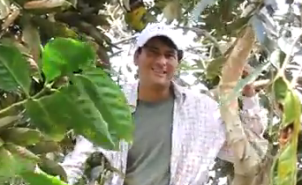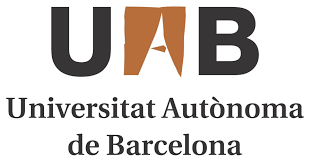
By Carlos Zorrilla.
On April 10, 2014, the campesino leader Javier Ramirez of Intag Valley (Ecuador) was arrested without an arrest warrant outside of Quito. He was returning from a meeting convened by the Minister of the Interior, José Serrano. The warrant was issued hours after the actual arrest of Javier Ramierez. He is currently in an Ibarra jail serving a 90 day sentence while the government investigates the charges of rebellion, sabotage and terrorism. The initial charge for rebellion was filed by ENAMI, the Ecuadorian state-owned mining company. The legal process was then triggered by a confrontation between villagers and ENAMI employees.
In the course of the confrontation (April 6, 2014) one of the ENAMI employees was slapped in the face by a woman, as she found out that the speeding ENAMI vehicle nearly ran over two of her neighbors. The windshield of an ENAMI vehicle was broken, but nobody was seriously hurt. Yet, at the time of the confrontation, Javier Ramirez was demonstrably resting at home – with a swollen knee under a doctor’s orders. Javier ‘s brother, Hugo Ramirez also has an arrest warrant outstanding, but has not been arrested. Two renowned Ecuadorian lawyers have declared the arrest and incarceration to be clearly unconstitutional.
The outcome of this latest confrontation and the use of the justice system in Ecuador to criminalize opposition to mining projects are far from new. Resistance to this mining project dates back to 1995 and is based on devastating environmental impacts identified by Japanese experts for a small copper mine, such as massive deforestation of primary cloud forests, impacts to dozens of species of mammals and birds in danger of extinction, pollution of rivers with heavy metals, increased crime and relocation of four communities, as well as violations of fundamental rights of the affected communities. Steady and strong opposition by the vast majority of communities and organizations has to date resulted in the expulsion of two transnational corporations: Bishmetals (subsidiary of Mitsubishi), and the Canadian, Ascendant Copper. During the reign of terror of Ascendant Copper, the people from Intag had to fight against paramilitary forces against the defenseless population of Chalguaya Alto, Junin, and Barcelona, as well as a set-up against one of the anti – mining activists to try to eliminate him.
After the expulsion of Ascendant Copper in 2008, the government of Ecuador reopened the conflict in 2011 by signing an agreement with the Chilean government. This happened without any consultation with local governments and communities. According to this agreement, Codelco, the largest copper producer in the world, should help ENAMI to explore and exploit Ecuadorian mining projects. Due to the rejection of the population, however, neither ENAMI nor Codelco have been able to carry out the environmental impact study which is needed for the onset of advanced exploration, which now is already two years behind schedule.
Despite continuous rejection of the mining project – manifested through annual assemblies of Intag’s population since 1996, Enami and Codelco keep on trying to force their way. Since the signing of the agreement Enami, supported by Codelco, has been trying to develop the Social License for the project – equivalent to getting the approval of communities. This attempt has been fiercely rejected by several towns, especially in the communities most affected by the mining project. Yet, ENAMI has been able to sell their version of the project to other communities which will not be affected by mining, by omitting key information and not answering questions about the real intent of their presence in Intag.
This is the situation we are in today: Junin’s president Javier Ramirez sharing a cell with murderers and rapists, his Constitutional guarantee to defend himself at any stage of the legal process flagrantly violated, his Constitutional right to resistance trampled – by a government which increasingly criminalizes the protest against a project which is opposed by most communities, and which also threatens one of the most biodiverse forests on the planet. Intag is also a place where rural communities are building a much more solidarity-based and sustainable economy with projects such as the shade-grown coffee, small community hydroelectric plants, fair trade, and community ecological tourism, to name just some of the alternatives that people have created in response to large-scale mining. The community resistance of Intag against mining is so emblematic that the case was selected as one of the instances to be analyzed in our EJOLT report ‘Mining conflicts around the world: the environmental justice perspective’. (p. 152).
More info:
http://decoin2.blogspot.org/
http://codelcofueradeintag.blogspot.com
Unidos por Intag https://www.facebook.com/profile.php?id=100008258550921&fref=ts
www.decoin.org
http://cordinadorazonalintag.blogspot.com/





In a few weeks, Mariana Walter, Sara Latorre (of ICTA UAB), Carlos Larrea and others from UASB (Quito), will publish a book with a participatory evaluation of scenarios for Intag – comparing large scale copper mining for 20 years or so, against agriculture, increased tourism in this beautiful place, and small scale hydroelectricity. President Correa despises such rational approach to decision making. His only priority is to get money. He is becoming one main enemy of the environmental movement worldwide.
Pingback: Mining in Ecuador’s Intag Valley: An Untold Story of Climate Change | Committee on U.S./Latin American Relations